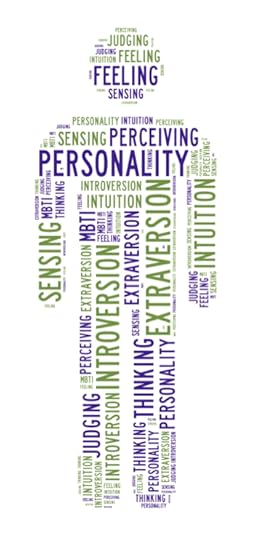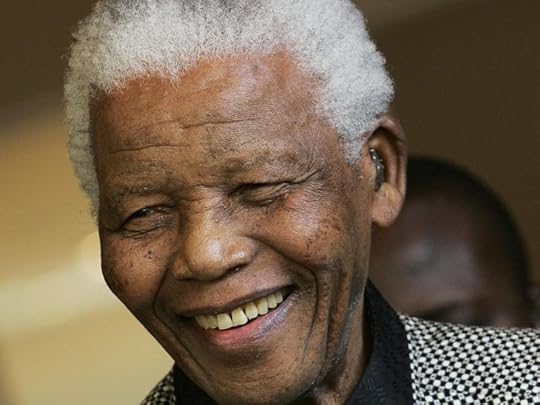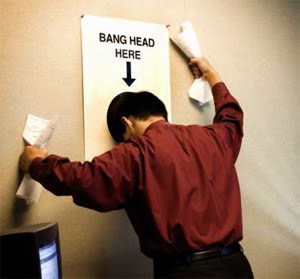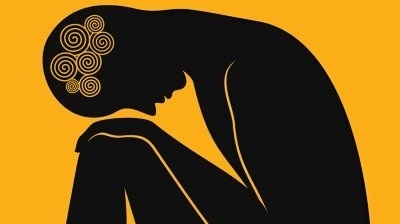Richard Harris's Blog, page 23
September 10, 2017
What You Should Be Reading, Scientifically Speaking
Where would be without the dependable and attractive Myers-Briggs Type Indicator (MBTI)? In an article from bustle.com called “The Genre Of Book You Need To Be Reading, Based On Your Myers-Briggs Type,” Charlotte Ahlin (@CharlotteAhlin) breaks down how this system works and, more specifically, how it relates to your ideal reading tendencies.
The MBTI is an introspective personality quiz based on Jungian psychology. According to R.M. Kaplan and D.P. Saccuzzo, co-authors of Psychological Testing: Principles, Applications, and Issues, “The underlying assumption of the MBTI is that we all have specific preferences in the way we construe our experiences, and these preferences underlie our interests, needs, values, and motivation.”
As Ms. Ahlin explains:
Myers-Briggs uses four different sliding scales to determine your fate: the “I” or “E” stands for “introvert” or “extrovert,” which is pretty self explanatory if you’ve been to the internet before. But there’s also “N” or “S” for “intuiting” or “sensing,” which describes whether you intuit information internally or observe it externally. Then there’s “T’ or “F” for “thinking” or “feeling,” which determines whether you’re naturally logical or naturally emotional. Finally, there’s “P” or “J” for “perceiving” or “judging,” which means you’re either a go with the flow improviser or a highly organized decision-maker.
If nothing else, it’s fun to take this Myers-Briggs test. Why? Because tests are fun, funny and funnily. I myself took it and have determined that I am, first and foremost, an ENTP personality. That corresponds to thrillers, which I do enjoy very much. A close second for me is ENFJ, which corresponds to literary fiction, the genre I now write most of my books in professionally.
Click the above article link if you’d like to take the test and see which field of literature most closely matches your personality type.


Music for Writing
Hey! I finally found a picture of my doppelgänger! Except I have a mullet of curly hair that men are jealous of and women swoon over. And my face is much more spatial – and palatial. Oh, and my back is always erect when I type. Always. Well, there’s also the hot issue of my eyes, which are not quite as beady and shine with illumination like a handsome dwarf star that’s run out of hydrogen to burn so begins collapsing onto itself. Hmm. I guess what I’m trying to say is that I am also a man, like the man in the picture, and I wear clothes and have a laptop computer.
My apologies for getting distracted by my doppelgänger. Now, onto today’s post!
Murakami Haruki published a memoir in 2013 called What I Talk About When I Talk About Running. Oh, that Murakami is so quirky!
Anyway, it’s early Sunday morning here. I’ve been writing since 5 a.m., and I was suddenly struck with this idea to share What I Listen To When I Listen To Music While Writing.
We’re all unique in our habits and patterns, but for me I can’t write creatively without my earbuds firmly in my side head holes. I can write in public and in private; with chaos going on all around me or in perfect tranquility; inside or outside; at a desk, on the floor, or in transit; with or without my bikini mesh high-cut thong on; etcetera; and so on; ad infinitum.
But without my instrumental music forming the backdrop to my writing experience, I might as well be writing in Polish. Which wouldn’t go over very well because I know exactly zero Polish words.
Per the advice of an old friend who emailed me yesterday and insisted I stop quoting other people in my Quote of the Day posts, I’ll actually quote myself for the first time in more than four years of running this site.
There’s a moment in A Father’s Son when the father, Rick Maloney, is listening to Pachelbel’s Canon in D late at night and becomes unusually emotional. As he tries to explain the raw power of music to his son, Rick says,
“You know, Schopenhauer once said that the effect of music is so very much more powerful and penetrating than is that of the other arts, for these others speak only of the shadow, but music of the essence. I love that line: for these others speak only of the shadow, but music of the essence!” He opened his eyes and looked into mine. “I’m convinced that if angels do actually exist, they might very well have come down to Earth and inspired the great Baroque artist to write this canon.”
That’s kind of how I feel every morning after cruising into my “office” (coffee shop) and I begin writing as I bask in the auditory splendour of these incredibly gifted musicians.
So, if you’re looking for some new music to write to or meditate to or, I don’t know, party to (?), click on the following links and see if they turn your crank.
1)
2)
3)


September 9, 2017
Quote of the Day
“[I]f you get into politics, your [law] practice will suffer. You will get into trouble with the authorities who are often your allies in your work. You will lose all your clients, you will go bankrupt, you will break your family, and you will end up in jail. That is what will happen if you go into politics.”
Attorney, friend and mentor Lazar Sidelsky to Nelson Mandela (c. 1943) after Mandela expressed his interest in becoming involved in South African politics, from Long Walk to Freedom (1994)
In line with today’s theme of what my friend Maria A. (@VeganChefAmore) says all the time – “Follow your bliss, yo!” – I thought this Quote of the Day particularly apropos to chasing your dreams.
I first read this passage in 1997 and have never forgotten it. The 20th century was replete with men and women who revolutionized science, the arts, politics, military warfare, and civil rights. In my esteemed opinion, however, there were two titans – just as Sir Isaac Newton had alluded to three centuries earlier – who stood on the shoulders of giants and whose height appeared taller than anything we mere mortals could comprehend. One was Mahatma Gandhi, the other was Nelson Mandela. In fact, Mandela was the main reason I visited South Africa in 2009. (I had the crazy hope I’d be able to meet Madiba himself somehow, some way. Instead, I got to meet Clint Eastwood and watch him and his pals Morgan Freeman and Matt Damon film a movie in Cape Town called Invictus.)
If you haven’t read Long Walk Freedom, do so. It’s easy to become pessimistic/depressed in these times when the world seems ready to implode upon itself at any moment and we balance precariously as a species on a razor’s edge. (Fortunately, I’ve been reassured by the most powerful leader in the world that global warming is a sham, so I suppose we’ve got that going for us…which is nice.)
But then you read an autobiography like Nelson Mandela’s and you’re quickly reminded that there is good in this world and that a young go-getter named John was right a couple of millennia ago when he said, “The light shines in the darkness, and the darkness has not overcome it.”
Perhaps even more eloquently put, this is what Mandela was talking about in his book when reflecting upon his 27 years in prison and the hate and anger and torture and shame he faced on a constant basis:
“I always knew that deep down in every human heart, there is mercy and generosity. No one is born hating another person because of the color of his skin, or his background, or his religion. People must learn to hate, and if they can learn to hate, they can be taught to love, for love comes more naturally to the human heart than its opposite. Even in the grimmest times in prison, when my comrades and I were pushed to our limits, I would see a glimmer of humanity in one of the guards, perhaps just for a second, but it was enough to reassure me and keep me going. Man’s goodness is a flame that can be hidden but never extinguished.”


Do You Have What It Takes to Pursue Your Passion?
The dream
“There’s a harsh truth about getting paid to do what you love that most people aren’t aware of: If you’re not careful you can follow your passion right into poverty.”
In his “7 Hard Truths About Building a Creative Career,” Srinivas Rao (@UnmistakableCEO), author of Unmistakable: Why Only Is Better Than Best, outlines some “hard truths” and makes a good, or at least educational, read if you’re seriously thinking about “chasing your dreams” of “following your bliss” with regard to your career.
Keep the following quote in mind if you’re really, really serious about quitting that day job that’s sucking the soul out from your nostrils every day:
“If you’re worried about how to put a roof over your head, food on the table and keep the lights on, your mental bandwidth for creative and entrepreneurial endeavors will be hijacked.”
To summarize the above piece I linked to, Srinivas Rao says there are seven key points to consider before diving into the deep end off a 200-foot tower:
1. There has to be a Market Demand
2. You have to Create Value
3. You Need to Pay the Bills and Reduce Your Overhead
4. Treat Your Current Situation As a Learning Experience
5. You need to Develop the Habits of a Professional
6. You must commit to Mastering Your Craft
7. There Are No Shortcuts
The reality
And, of course, there are things he refers to as “failure points for all creatives.” Here are the three he lists and talks about briefly, “they” in this case refering to the possible future you.
1) They can’t endure the poverty: Being poor sucks and it’s not easy. Many people quit they’ve had enough of living on ramen and sleeping in less than ideal circumstances. And to be honest there’s nothing wrong with that. If your dream is making you hate your life, perhaps it’s not the most worthwhile dream.
2) They can’t develop the skills: In a world with this much noise, the quality of your work matters. Becoming skilled at what you do isn’t an option, it’s a necessity.
3) They can’t evolve and adapt: When you reach later stages in a creative career, and you’re getting to do work for other people (i.e. publishers, web sites, etc.) you have to learn to evolve and adapt. A lot of what got you to where you are will no longer work the way it once did.
This might all sound like doom and gloom, but it’s practical. One last piece of advice I’d offer is this: Are you the type of person who enjoys being with a steady partner, one who never rocks the boat, even if you’re not madly in love? Or are you the type of person who dreams big, demands pure, unbridled love at any cost, and will sacrifice whatever it takes to find The One?
If the former, keep the day job; if the latter, make sure you’ve got at least six months worth of living expenses in the bank before you take the next step. And a parachute, hopefully painted a golden colour. The last thing you need (aside from a hole in the head) is an eviction notice, nowhere to turn, and no job to pay the bills and put ramen on the table.


September 8, 2017
New Literary/Publishing Job Openings
Here are a few new jobs in the literary/publishing field now open to applicants. Click on the links below to learn more about each one.
Publicist, University of Toronto Press
Production Editor, University of Toronto Press
Marketing Coordinator, University of Toronto Press
Marketing and Publicity Coordinator, Inhabit Media


National & International Residency Projects
If you’re an Ontario resident and would like to pursue an artistic residency project in Quebec from one week up to a maximum of 12 weeks, click here to learn more. Up to $10,000 is available in grant money and the deadline is November 1, 2017.
Here’s a brief summary of the program’s purpose:
The program provides Ontario artists with financial support to pursue professional development opportunities outside the province. The program aims to:
provide support at a time in an artist’s career when artistic growth and renewal will have an impact
provide freedom to experiment, be exposed to new influences, take risks and grow personally and professionally without the pressure of producing
provide access to new cultural surroundings and, in turn, a broader perspective
encourage networking and relationship-building to promote an exchange of artistic views across national and international boundaries.


Quote of the Day
– Look at my hat, everyone! It’s a real hat!
– Put your stupid hat down, dearest. You look douchey without it on.
“He who loses money, loses much; He who loses a friend, loses much more; He who loses faith, loses all.”
–Eleanor Roosevelt
“Happiness is not in the mere possession of money; it lies in the joy of achievement, in the thrill of creative effort.”
–Franklin D. Roosevelt
Talk about a power couple! Eat your heart out, Shelly O. and Barack, George and Amal & Justin (no, not Beebs) and Sophie!
I’ve been thinking a lot about money these days (haven’t we all?), and when I saw Frankie and Ellie R.’s take on the green-eyed monster, I knew I had to post on it.
In terms of Eleanor’s quote, I firmly believe she has hit the monster right in the eye. Personally, I have lost much and many $$$ over the last few years. I’ve lost a few friends over that time, too. However, somehow and in some strange way, I have not lost my faith. And so, like Mr. Frost’s road less traveled by, “that has made all the difference.”
With respect to her esteemed husband’s quote, I also wholeheartedly agree. Even at my lowest of low money-fueled doldrums, it has been the achievement of creative efforts that has helped buoy me in choppy, shark-infested waters.
So thank you, Mr. and Mrs. R.! You’ve reminded me that, although a poor bastard, I can still seek happiness elsewhere (though let’s call a spade a spade, guys…there are worse things in life than having a boatload of money).


Death to Tipping
There. I said it. Now bring it, bartenders and waiters and valet drivers of the world. Bellhops, we’ll get to you later.
In a piece titled “15 Percent? 20 Percent? It Doesn’t Matter Because Tipping Culture Is Fundamentally Broken: Even those who earn their living via tips despise them,” self-described bartender, writer, cocktail nerd and columnist Haley Hamilton (@DigBoston) has reached the tipping point and drawn a line in the (tipping) sand: No more tips at bars and restaurants. Instead, it’s time to be fair and bring about a profit-sharing plan that benefits everyone.
As a consumer, I hate tipping. You just handed me a cup of coffee, so why am I expected to give you more money? Oh, because your boss is a dick and pays you sub-minimum wage? Wow! You carried that single pint of beer all the way from the bar to my table? C’est magnifique! Here’s an extra fiver for the effort.
For those who have never worked in the service industry, specifically bars and restaurants, here’s a dirty secret nobody talks about: those who work the hardest jobs get paid the least. When I was younger, slimmer and so much more handsomerest, I worked my way up from the bottom to the top, from dishwasher to busboy to bartender. As a dishwasher I made minimum wage and 0% in tips at the end of my shift, even if I was bleeding from broken glass. As a busboy, I made somewhere in the vicinity of 10% of all bartender and waitress tips, usually about $45-$80 a shift, depending on how busy it was that night. One New Year’s Eve, after busting my ass for 12 hours (and throwing up during my shift), I got $200 from our top waitress – she took home a cool $2,000. As a bartender, I began understanding why people were drawn to thinkers like Karl Marx a century earlier. My busboy had my bar set up for me when I cruised in to the establishment five minutes before my shift. Unlike him, I wore cool clothes and had my beautiful hair coiffed and styled in such a way that even men swooned. Six to eight hours later, after being flirted with (wait, I get paid to have babes ask me home, drink for free and then get tipped on top of it all?), I’d cruise home with at least three digits of tips in my pocket, at least one phone number and an inflated ego.
So, the first problem with tipping is that it’s complete bullshit in terms of who gets paid what.
The second problem, as Ms. Hamilton points out, is that it leads to destructive relationships at said establishment. Employees would do seriously f***ed up things to each other to snag New Year’s Eve shifts as well as Thursday to Saturday night shifts. There’d be bitterness, not teamwork, as the mantra between the higher-ups and the peons because, really, how could you trust that the waitress/waiter pulled in exactly $356 in tips? Competition is healthy, but when you’re all supposed to be on the same team, it’s not cool to be thinking of ways to sabotage coworkers.
The third problem is that it can strain long-term patronage. If I tip 10 percent on the cost of the meal (not including tax like us bleeding-heart Canadians do, which, by the way, I’ve always wanted to ask fellow Canucks: Why the hell are you tipping 15 percent to Ottawa when you pay for your stupid marshmallow Pumpkin Spicy Hot-As-Sin! Latte?), the server will most likely not be happy and, in some instances, not treat me well the next time I visit. That, in turn, drives me away from the place and makes me want to look for somewhere else to take my business.
As the American William R. Scott wrote 101 years ago in his book The Itching Palm, “Tipping, and the aristocratic idea it exemplifies, is what we left Europe to escape. It is a cancer in the breast of democracy.” Yeah, you read that right and rightly: People have seen through the veneer of tipping and its inherent flaws for more than a century.
So where on Earth did this tradition begin? Here’s a clue. What do Canada, the U.S., South Africa, India, Australia and New Zealand have in common? Aside from being beautiful countries, we’re all former British colonies. While the concept of tipping goes back to 15th-century England, it wasn’t until the early 20th century that “tips were so ingrained in upper-class British culture that a trip to a friend’s mansion meant bringing nearly $100 in cash for the servants.”
– Hey, Billy, wanna sleep over this weekend?
– Sorry, Jacqolinne. I only have $156 in my bank account.
I’ve had the good fortunate to travel all of the continents in my lifetime, and while no place is perfect – and “there” is no better than “here” – it’s amazing to note that 1) nobody tips more, and with more guilt, than Canadians (Americans are a close second); 2) that you have to tip random “parking guys” in South Africa so that you don’t lose your tires while you’re gone; 3) how did Western Europe, home of feudalism and the aristocracy, get it right with tipping: one euro per patron is the accepted custom; 4) how is it possible that nobody in East and Southeast Asia accepts tips? I spent 10 years living in Korea and traveling extensively throughout the region and could not force a tip on drivers or servers if I tried; 5) I don’t think I’ve ever met more entitled service industry workers than in India, where people judge the tip to be equivalent with your skin colour (yes, an inflammatory statement, but when you’re not actually allowed to leave an establishment until the person feels sufficiently rewarded for their hard work, it leaves a bitter taste in your mouth).
As Ms. Hamilton noted, “[In the past], a tip wasn’t only paid for services, it was a mark of social and economic superiority, which is why, when the custom crossed the Atlantic in the 1800s, it was originally shot down as un-American.”
Forget about un-American, I say. Do what Danny Meyer is almost single-handedly doing in New York today – at Michelin-starred eateries, no less. He’s abolishing tips (“Nope, your tips are not welcome here!”) and instead pooling the 18 percent service charge added to the patron’s bill so that it can later be divided more fairly among servers and kitchen staff.
Haley Hamilton concludes her own piece by writing, “In an industry that exists to create and augment the experiences of others, I don’t think it’s too much to ask that staff be fully included in that philosophy.”


September 7, 2017
Crack for the (Literary) Soul
When I was a child, I spoke like a child, I thought like a child, I reasoned like a child.
(Therefore, I read Sidney Sheldon with reckless abandon.)
When I became a man, I gave up childish ways.
(Ergo, I switched over to Lee Child.)
Thank godness (sic) for Corinthians! Like many readers, I have fond memories of reading as a youngster. When I wasn’t dining on chicken noodle soup to fortify my soul, I was either playing hockey or video games, reading, or volunteering my time at one of 23 nursing homes/shelters/soup kitchens in the pre-GTA (i.e. Toronto Toronto).
I read Watership Down, The Tale of Peter Rabbit, the Hardy Boys, Charlie and the Chocolate Factory and…get ready…Are You There, God? It’s Me, Margaret. (“Hey, Mom,” I’d later say, “I thought a period ended a sentence.”)
But it was Sidney Sheldon whom I fell in love with as a young teen and consumed like cotton candy dipped in a sumptuous 151 proof rum & crack sauce. (“Whoa,” I’d later think – but not verbalize because it sounded sacrilegious, “You can put creams down there to do that?!?!?)
As I grew older, school MADE ME read novels about boring subjects like communism and totalitarianism as seen through the eyes of farm animals, orphans who like hanging around graveyards, and teenagers in a pre-Survivor scenario who kill instead of show off their naked upper bodies, etc.
Aside from a few girly rags in between during this academic period of my life (Hey, man, Stephen King publishes in Playboy! So does Margaret Atwood, Murakami Haruki, Norman Mailer and Ray Bradbury – so back off!), I didn’t have much of a chance to read anything except what was prescribed to me by all my Doctors of Literature.
Once I got out of school, though, I started reading what I wanted to read once again, and soon my literary boundaries began growing in leaps and bounds. I started my first book club in 2004 and my current one in 2009. Whether fiction or non-fiction, whether written in English or translated, whether a male or female/young or old author – I didn’t care. Soon I was slurping away on literature like a kid attacking a Slush Puppy after a hockey game. (Or Alberto Manguel walking around a library with a grocery cart big enough to hold all the books of Alexandria.)
Although I tend to read more serious literature these days most of the time (because I lost my sense of humour somewhere around Yonge and Lawrence a while ago, I’m told), I still succumb to the Lee Child virus every now and then. Which is what I did last week. Which is why I feel a bit lighter in the brain, but a bit sturdier in the happiness index.
I don’t read a lot of thrillers, but something about Mr. Don’t-Call-Me-a-Child, Asshole! resonates with me like, oh, I don’t know, how certain people feel upon getting a little blue box from Tiffany’s for Christmas or someone else being handed the keys to a muscle car and told to drive it hard into the ground.
Jack Reacher is not remotely human, a perfect soul in many ways yet has no sense of commitment. But still.
But still I can’t get enough of him. If you’ve only seen the recent Tom Cruise Jack Reacher series movies, do yourself a favour. Go to a hospital and get a brain scrub. Have those memories completely erased from your brain and then start at square one: pick up ANY Jack Reacher novel (there’s no real thread through them except the brother who comes and goes and a few other small details), find a comfortable place to read, and strap yourself in for a wild ride. You won’t regret it.


Failure Is Not an Option
Willpower: the final frontier. To boldly go where no man has gone before.
That’s the tagline for something, isn’t it? Well, even if it isn’t, Benjamin P. Hardy (@BenjaminPHardy) has something to say about it in his article titled Willpower Doesn’t Work. Here’s How to Change Your Life. (The article is an excerpt from his upcoming book, The Proximity Effect.)
Titles like the above link usually make me yawn and pick at my nails. However, I’ve read some of Mr. Hardy’s stuff in the past and although he’s a little too optimistic and sunshiny for me in the early morning, days I feel like garbage, or nights I want to bang my head into a brick wall while listening to Metallica’s “Master of Puppets,” every once in a while I manage to stumble across his online posts when I’m a touch more grounded. This is one of those moments – and this is one of those pieces that’s worth reading, if only because it’s a bold statement he makes, a final frontier if you will, and one where most men and women don’t usually go.
One of the first quotes he references is the following:
“Willpower is for people who are still uncertain about what they want to do.”
See, this is the kind of philosophical filet mignon I enjoy sinking my teeth into with a fork and chainsaw because it’s true. And while it’s true, it still screws with your head because you’ve been taught the exact opposite thing your whole life.
As the author goes on to say:
The very fact that willpower is required comes from two more fundamental sources — the causes:
1. You don’t know what you want, and are thus internally conflicted.
2. You haven’t committed to something and created conditions that facilitate your commitment.
Put another (much more crass) way, do as Chopper Reid says and harden the f*** up.
Seriously, though, lots of people like to quote Michael Jordan when it comes down to this, but Sir Air Jordan did indeed have a point when he said that once he makes a decision he doesn’t think about it anymore. What’s done is done and you’ve reached a conclusion, now focus on making it happen.
On a personal note, I’ve failed many more times than I’ve succeeded with respect to accomplishing goals; if my life win/loss ratio were a batting average, I’d be relegated to the T-ball league somewhere in Laos. Perhaps the underhand mushball league in Burkina Faso if I got lucky.
However, that’s not to say I haven’t achieved some of the things I’ve set my mind to. And just as Benjamin Hardy writes, it wasn’t some kind of mysterious willpower (which he and other psychologists define as something akin to a muscle: the more you have to use it, the more you wear it out, and consequently the less ability it has to help you in your time of need) that allowed me to make these significant advancements in my life. It was something closer to resoluteness, determination, conviction, resolve, or – as they like to say in the military – failure is not an option.
Set the goal. Lay down a plan. Own it. Do it.
And don’t look back in the rearview mirror until you’ve summited the mountain.















